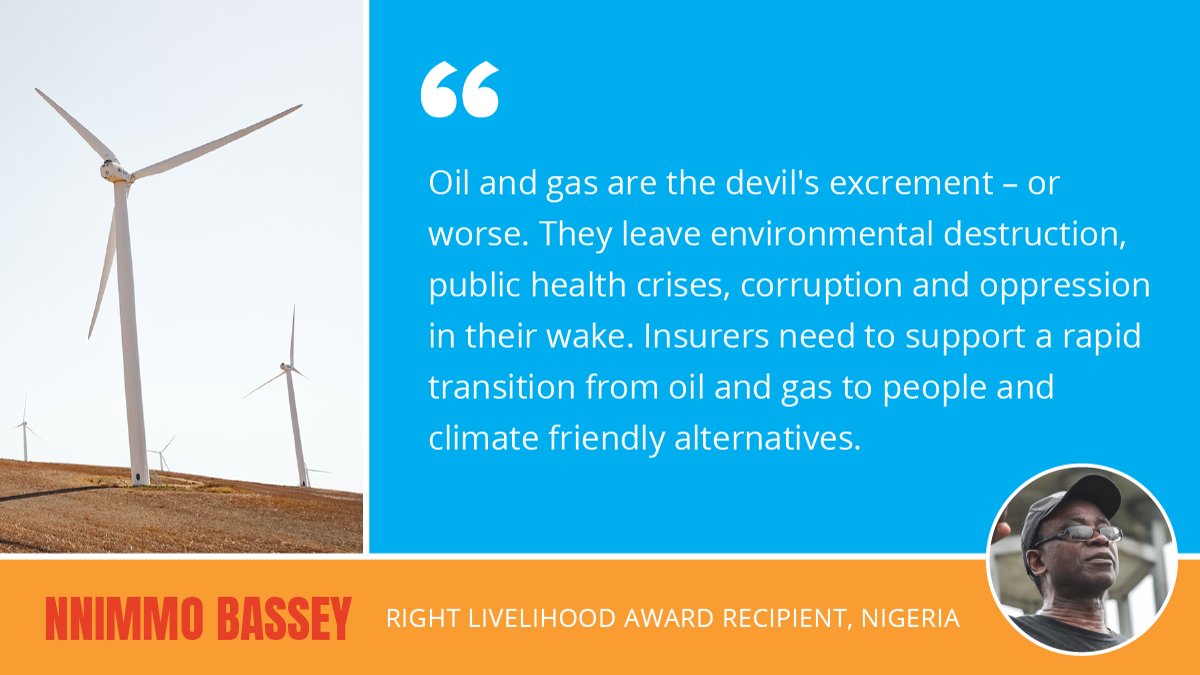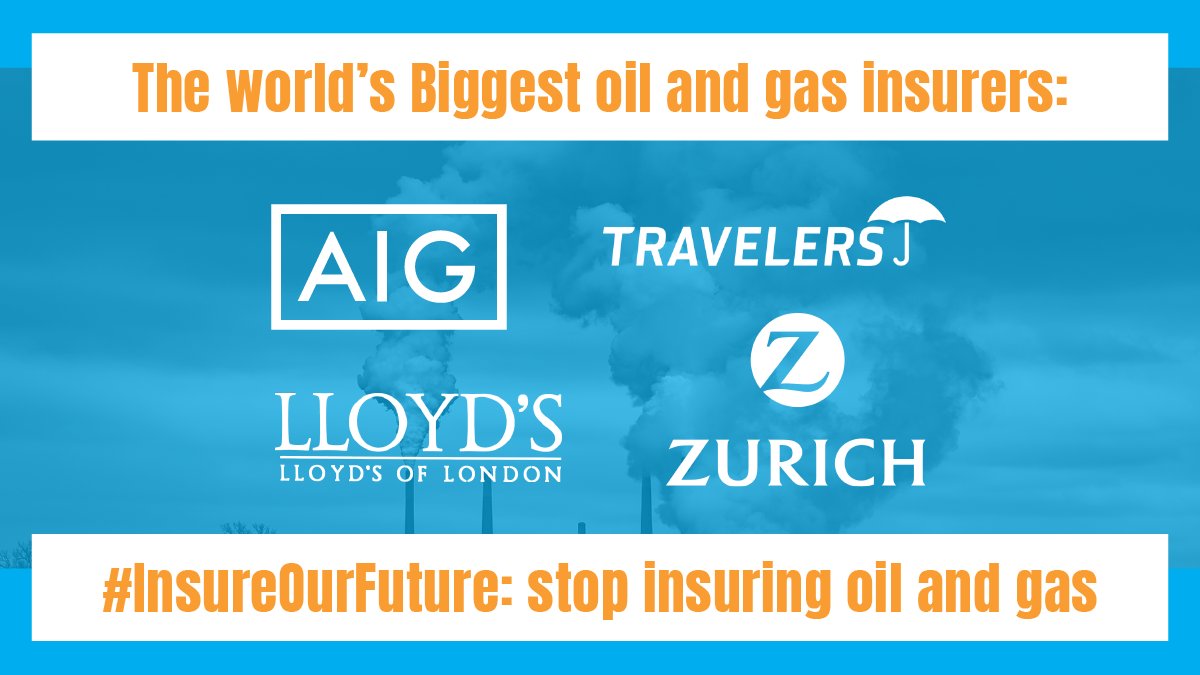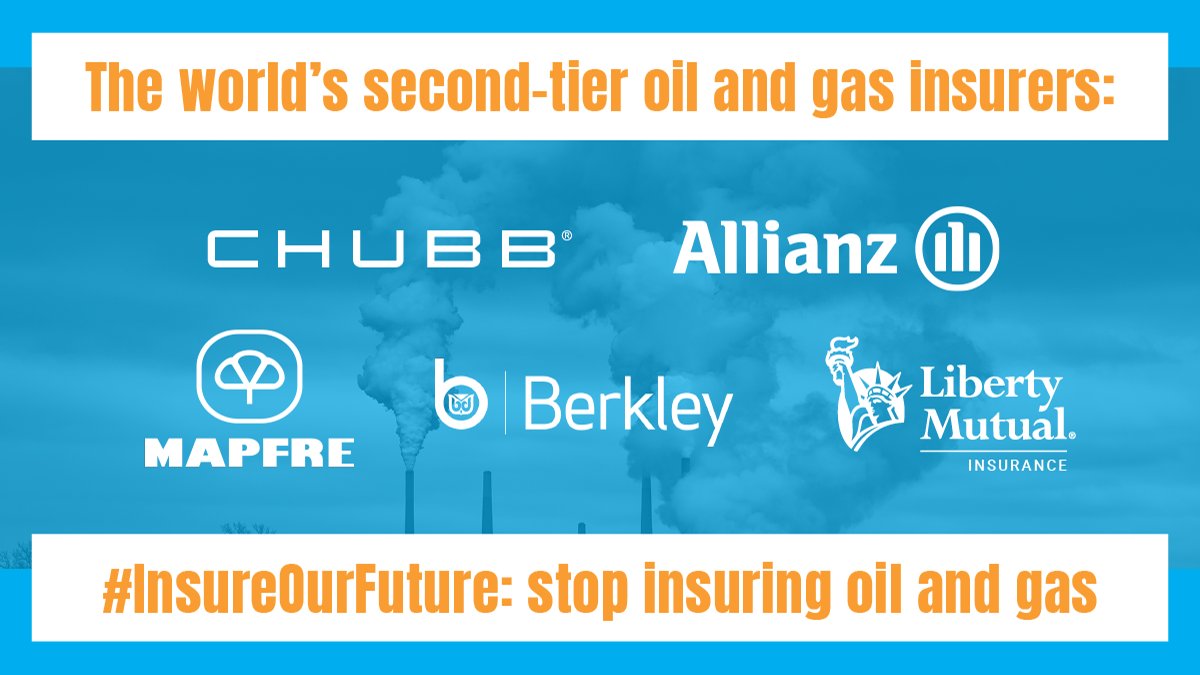
BREAKING: @MunichRe, the world’s biggest reinsurer, has just adopted an oil and gas exit policy. 🔥 Munich Re underwrites 22% of the global economy so this sends a strong message to insurers, energy companies and governments still considering new fossil fuel infrastructure. 🧵 

👍 Under the new policy, Munich Re will no longer insure or invest in new oil and gas fields, new oil midstream projects and new oil power plants from April 2023. This applies to Munich Re’s primary, facultative and direct reinsurance.
👎 The policy doesn’t address insurance for gas pipelines, LNG plants and gas-fired power plants, and is silent on how to address oil and gas in Munich Re’s treaty reinsurance business. A lot of progress and some more work to be done!
With @MunichRe, @SwissRe, #HannoverRe, @SCOR_SE, @Mapfre and a few others, 43% of the global reinsurance market (by premiums) have now restricted their cover for the oil industry – and all in this year alone. Even if gaps remain, this is a massive breakthrough!
@MunichRe @SwissRe @SCOR_SE @MAPFRE Two factors are driving change in the insurance industry more than any others: massive loss events and changes in reinsurance policies. With Hurricane Ian and Munich Re’s new oil and gas restrictions, insurance companies have now experienced both within a week.
It is high time for @LloydsofLondon, @Chubb, @AIGinsurance, @TokioMarine, @AXA, @Zurich and other insurers still underwriting the expansion of oil and gas production to see the writing on the wall and end their support for new oil and gas projects!
A few days ago Munich Re’s Lloyd’s syndicate, one of the most important oil and gas insurers on the London market, already announced its complete withdrawal from oil and gas for 1/2023. @BeazleyGroup, @MarkelStyle and other Lloyd’s fossil fuel insurers should follow its lead!
If you’re a shareholder in a company or a minister in a government still considering the expansion of their oil and gas infrastructure, be aware that they will soon find it more difficult, time-consuming and expensive to insure these risks!
As coal companies have already realized, insurance is the Achilles heel of the fossil fuel industry. You’ll find Munich Re’s policy at bit.ly/3fR8aLW and an @InsOurFuture response at bit.ly/3M9IuWK. #InsureOurFuture
For media inquiries, contact camilla.schramek@sunriseproject.org and lindsay@sunriseproject.org for @InsOurFuture, regine@urgewald.org for @Urgewald and ariel@reclaimfinance.org for @ReclaimFinance.
And an embarrassing correction to the figure I used in the first tweet: Munich Re directly and indirectly underwrites 13% of the global economy. More than anyone else but less than 22%!
Some good media coverage for now: ft.com/content/50e869…, reuters.com/business/susta…, insuranceerm.com.
• • •
Missing some Tweet in this thread? You can try to
force a refresh














